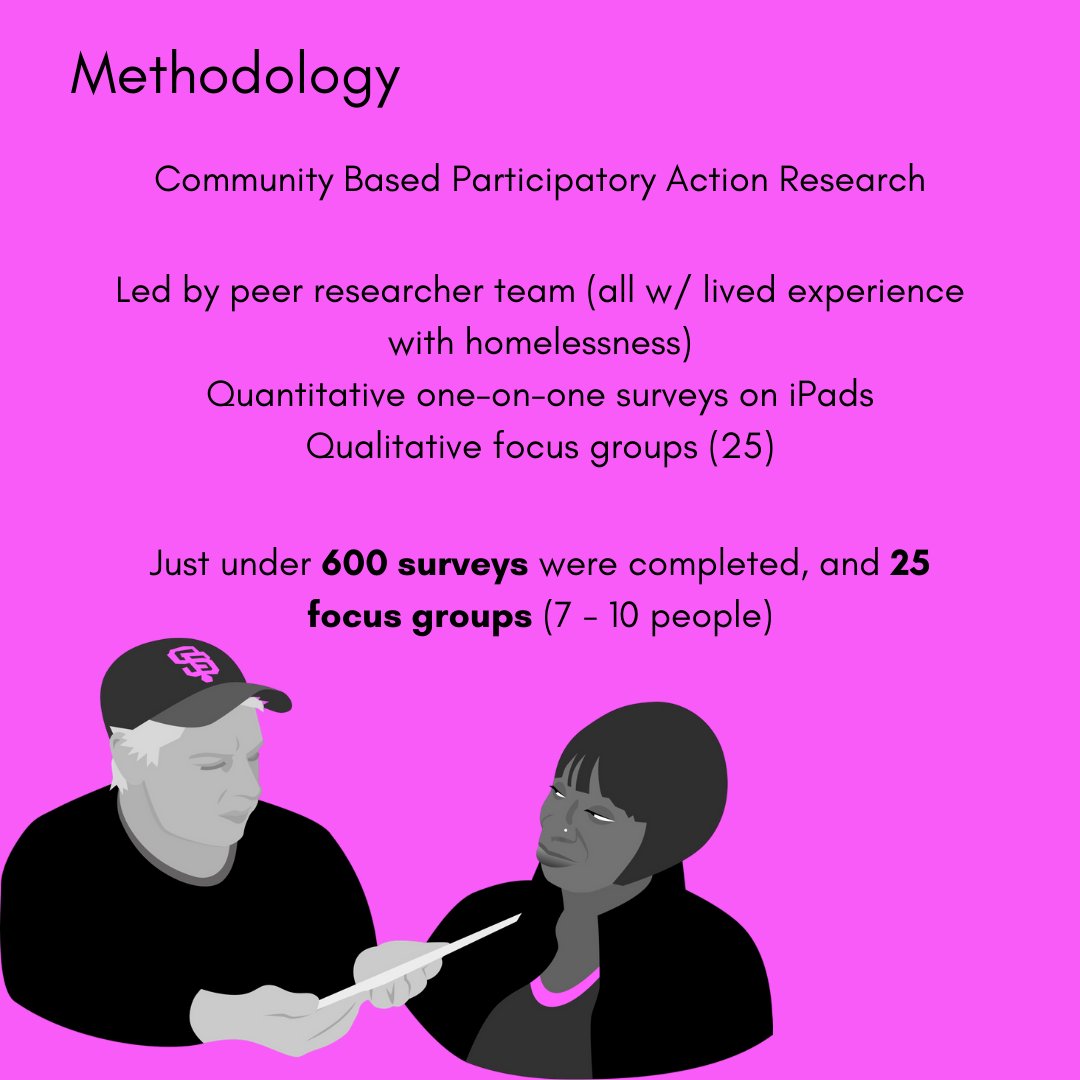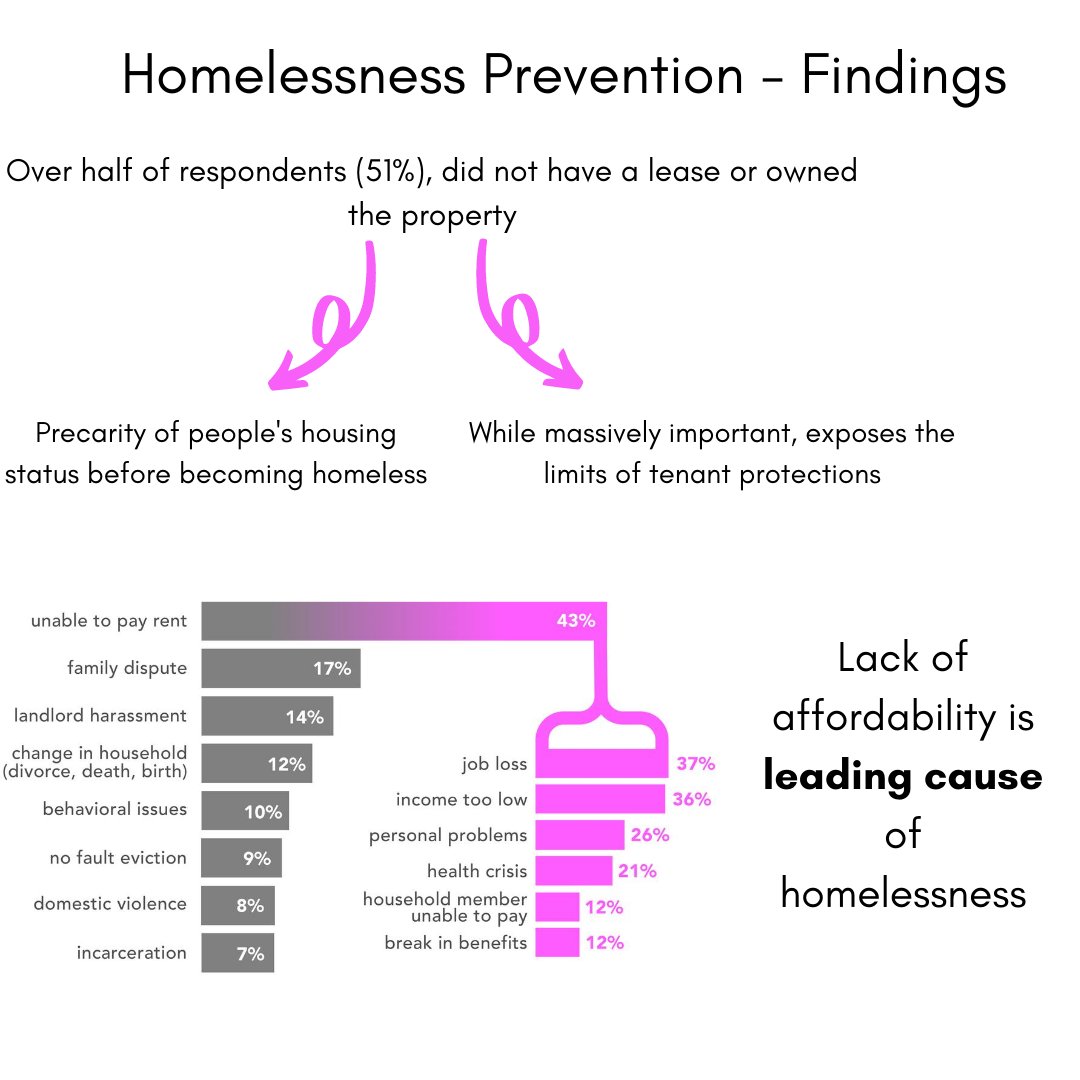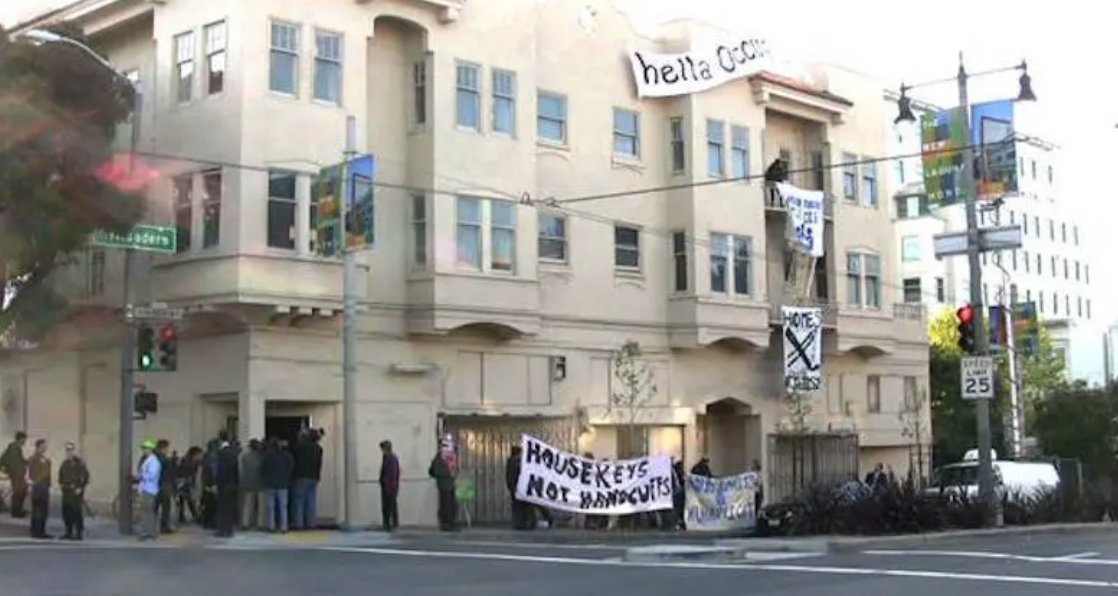
Incisive, succinct from @marykatebacalao
The 'plan' to 're-house' 2,359 people emphasizes filtering people AWAY from housing to bus tickets & other informal living situations. The city is prioritizing "exits to stability" over housing.
The 'plan' to 're-house' 2,359 people emphasizes filtering people AWAY from housing to bus tickets & other informal living situations. The city is prioritizing "exits to stability" over housing.
https://twitter.com/sfexaminer/status/1325966698177032192
There's nothing stable about a few weeks at your family's house during pandemic, flu season, etc. There's nothing stable about a bus ticket to some far flung city.
There's nothing more stable than a house
There's nothing more stable than a house
Another part of this story that sometimes is under-mentioned. Hundreds of emergency hires- marginally housed, formerly unhoused, people seeking jobs were just let go in the midst of the winter holidays.
The city has decided that it's all just too expensive and temporary to care.
The city has decided that it's all just too expensive and temporary to care.
We think it's more expensive to not seize this moment to actually re-house people, to potentially plunge hundreds of workers to the unemployment line, to not listen to the doctors, health professionals, service providers and most importantly. Unhoused San Franciscans.
We are still on item #18-21. I'd get some snacks and get comfortable. We'll try to update you when it comes up!
We've now moved to items 22-29.
We're about to start the hearing!
Please go to sanfrancisco.granicus.com/MediaPlayer.ph… to view!
@shamannwalton highlighting the issues with the "numbers" of the plan.
They just don't add up.
Please go to sanfrancisco.granicus.com/MediaPlayer.ph… to view!
@shamannwalton highlighting the issues with the "numbers" of the plan.
They just don't add up.
HSH is now presenting their plan with "exits to stability, not street"
HSH cites Houston: patch.com/texas/houston/…
But here in SF only ~30% of folks in hotels have started to go through the bureaucracy necessary to re-house.
HSH cites Houston: patch.com/texas/houston/…
But here in SF only ~30% of folks in hotels have started to go through the bureaucracy necessary to re-house.
A brief presentation from HSH and now we're hearing from service providers, who are asking for the plan to be delayed so we can collaborate and ensure the plan actually re-houses the 2,359 people, that the emergency hires are considered, & concerns with equity addressed.
Also follow
https://twitter.com/CVH_Allies/status/1326348488305565696?s=19for other updates on the hearing/presentations.
@HospitalityHous's Joe Wilson speaking powerfully about the glaring issues with this plan:
The plan does not re-house people
Bus tickets are not stable or safe
Mass layoffs of Frontline workers
No public health rationale
The plan does not re-house people
Bus tickets are not stable or safe
Mass layoffs of Frontline workers
No public health rationale
@HillaryRonen and @NormanYeeSF are asking for financial projections to understand the realities of what the hotel program will cost.
@MattHaneySF highlighting how the organizations running SIP hotels with HSH have come out tonight almost entirely in unison asking for the plan to be paused.
Bus tickets and informal living situations are NOT long-term solutions.
Bus tickets and informal living situations are NOT long-term solutions.
STEP BACK: Remember that all this conversation of budget strain, cost of the program is because the city took a weak approach to negotiating. The city got "bad deals" because they didn't try and didn't want to ruffle the feathers of SF's elite hoteliers.
"We can't experiment with people's lives" @shamannwalton
Follow another thread for updates
https://twitter.com/samklew/status/1326353908969603073?s=19
@DeanPreston highlighting that HSH felt compelled to use eviction to scare and traumatize people into navigating bureaucracy.
If you have to scare people to access services- maybe ask why people feel that way about your services.
If you have to scare people to access services- maybe ask why people feel that way about your services.
Who was consulted on the SIP Hotel and Re-Housing plan?
Hospitality House says "No"
Plan was ANNOUNCED late Friday evening on October 23rd. We got the information Friday evening and over the weekend we started to respond.
Hospitality House says "No"
Plan was ANNOUNCED late Friday evening on October 23rd. We got the information Friday evening and over the weekend we started to respond.
"Where are our priorities as people?" - @SandraLeeFewer
https://twitter.com/CVH_Allies/status/1326380272338821120?s=19
It looks that this hearing will be continued to 12.01, but they're doing public comment now!
Go go go!
Go go go!

Thank you all so much for your public comment (cut down to a minute) & (after nearly 5 hours of Board mtg) you turned out for over an hour.
You are powerful when you speak. Shoutout especially to those calling in FROM SIP HOTELS.
Listen to the unhoused!!
You are powerful when you speak. Shoutout especially to those calling in FROM SIP HOTELS.
Listen to the unhoused!!
• • •
Missing some Tweet in this thread? You can try to
force a refresh






